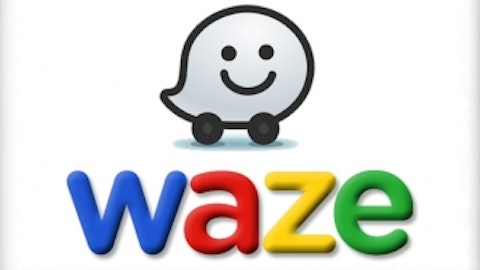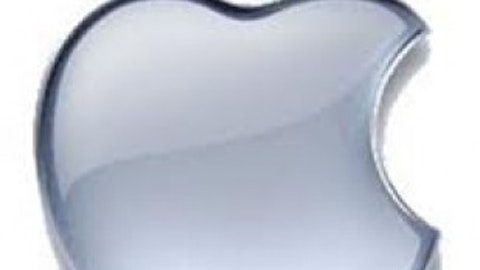At the beginning of 2013, the phrase ‘battle for a third ecosystem’ became the staple in smartphone circles. Both Nokia Corporation (ADR) (NYSE:NOK) and Research in Motion Ltd (NASDAQ:BBRY) have been pushing relentlessly for market share in a bid to emerge third in a race largely dominated by Apple Inc. (NASDAQ:AAPL) and Google Inc (NASDAQ:GOOG).
far, the odds are stacked up against Research in Motion Ltd (NASDAQ:BBRY). Although critics argue that the negative media on Research in Motion Ltd (NASDAQ:BBRY) is for the most part a put-on influenced by short sellers, an objective look at the industry suggests that in as much as Research in Motion Ltd (NASDAQ:BBRY) could be doing well, Nokia Corporation (ADR) (NYSE:NOK) is doing better. And for investors, that’s all that matters.
U.S. market still a very strong indicator
Research in Motion Ltd (NASDAQ:BBRY) has done remarkably well in its Canadian home market as well as in the European market. Nonetheless, the muted U.S. response is not something that can be easily swept under the rug. Not only does the U.S generate a sizable chunk of global smartphone sales, but it also acts as a global indicator of product reception.
It would be unreasonable to compare Research in Motion Ltd (NASDAQ:BBRY)’s U.S. market share year on year. The Canadian tech gem only started its turnaround recently. Nonetheless, it would be worthwhile to look at how the BlackBerry platform has trended in the U.S. from the beginning of the year.
According to comScore, BlackBerry lost 0.8 percentage points between February and April. During this three month period, its market share dipped from 5.9% to 5.1%, representing the biggest slump among its peers. In the same period, Microsoft Corporation (NASDAQ:MSFT), which is the platform that supports Nokia Corporation (ADR) (NYSE:NOK), lost 0.1 percentage points to come in at 3% of the market. Microsoft Corporation (NASDAQ:MSFT) is the platform that lost the least market share, while Apple Inc. (NASDAQ:AAPL)’s iOS was the only platform that posted growth, gaining 1.4 percentage points to come in at 39.2% of the U.S. market.
While BlackBerry’s prospects in the U.S. remain uncertain, Nokia Corporation (ADR) (NYSE:NOK) is riding on the back of Microsoft to enhance market penetration. Reports relating to late May indicate that its recently unveiled Lumia 928 sold out within the first two weeks at Verizon Communications Inc. (NYSE:VZ) and RadioShack Corporation (NYSE:RSH). The availability of the Lumia 928 on Verizon Communications Inc. (NYSE:VZ) does a lot to enhance Nokia Corporation (ADR) (NYSE:NOK)’s smartphone footprint. Initially, the Lumia 920, which is an equally complementary smartphone, was only available on AT&T Inc. (NYSE:T). The current improved availability presents a chance for Nokia Corporation (ADR) (NYSE:NOK) to delve deeper into the market and rope in more customers.
Although official sales figures for the Lumia 928 in U.S. have not yet graced the public domain, Canaccord Genuity advanced a bullish case on the same. Canaccord argues that the Lumia 928 is Verizon’s third-best selling device after launch. This has pushed Nokia’s bid for U.S. market share a step higher as it now comes in as the fourth-largest vendor in the U.S after Samsung, Apple, and HTC.
Brand strength a game changer
Innovation alone delivers superior products but no sales. Apple knows this, that’s why despite being as innovative as it is, it places equal, if not more, emphasis on brand.
Factors such as brand differentiation and creating a unique selling point top the list of Apple’s priority. Even in the face of a weakening stock, those loyal to the company still hold on. I could argue that Apple has a mature brand. It is distinct, different, and dependable. That chic, high end mental image that comes with Apple has been the secret behind its record sales which remain remarkably high despite the price points.
The American Marketing Association contends that 70% of consumers buy products with popular brands while a further 89% consider brand popularity while choosing between similar products. This explains why Apple still remains the force to reckon with in the U.S. It recently previewed iOS 7 at the Worldwide Developers Conference 2013. Renowned Piper Jaffray Apple analyst Gene Munster argues that iOS 7 will be welcome news for Apple fans.
Through Microsoft, Nokia is following in Apple’s footsteps. Unlike BlackBerry, which was previously there in the smartphone market, Nokia is using the factor of being relatively new to differentiate its Lumia line up from the rest. And with Microsoft on board, this approach is taking shape faster. Not only does Nokia want to enhance the Lumia’s reputation as far as hardware, and in particular camera, goes but it is also touting the idea that the Windows Phone offers an entirely different experience.
For BlackBerry, Windows Phone is a thorn in the flesh. Despite the unveiling of new innovative products, BlackBerry still has to make up for a partly crushed brand. A section of U.S. consumers lost confidence in the brand after it failed to present a modern ecosystem over the past two years. Worse still, it failed to do this while Google Inc (NASDAQ:GOOG) and Apple were making remarkable inroads. Microsoft, on the other hand, is relatively new to smartphones and as such, can start off with a clean slate. That is an insurmountable edge.
Conclusion
Although it is still too early to conclusively tell whether Nokia will secure third place, it seems to have a better footing than BlackBerry. What’s more is that it can leverage its strength in the feature phone segment and funnel these users to mid-range or perhaps even high end Lumias.
The article Nokia Could Be Winning the Battle Against BlackBerry originally appeared on Fool.com.
Lennox Yieke has no position in any stocks mentioned. The Motley Fool recommends Apple. The Motley Fool owns shares of Apple. Lennox is a member of The Motley Fool Blog Network — entries represent the personal opinion of the blogger and are not formally edited.
Copyright © 1995 – 2013 The Motley Fool, LLC. All rights reserved. The Motley Fool has a disclosure policy.






